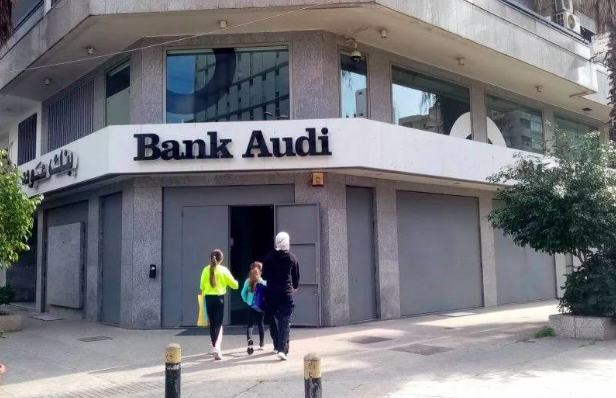
(Credit: MA)
BEIRUT — Bank Audi is predicting the prospects of the Lebanese economy to be highly uncertain in 2022. The bank’s quarterly report reveals that growth could fluctuate between a contraction of -6.5 percent, as projected by the World Bank and an expansion of +2.5 percent, as projected by the Institute of International Finance.
Here’s what we know:
• The report states that the outlook is contingent on upcoming political milestones, the realization of a final agreement with the IMF, the launch of structural reforms and the securing of assistance from abroad
• The report breaks down the drivers behind Lebanon’s spiraling inflation, defining hyperinflation as when the inflation rate exceeds 50 percent in one month or 1000 percent in a year. Although Lebanon has not reached hyperinflation status, prices still rose by 825 percent between September 2019 and March 2022. The report mentions the subdued increase in the cost of labor as one of the main reasons why the country has not yet reached hyperinflation.
• Bank Audi’s report attributes the surge in inflation to the depreciation of the Lebanese lira, and the removal of subsidies on energy and pharmaceutical products.
• Lebanon may be an outlier given its high level of inflation, however global inflation is forecasted at 7.4 percent in 2022 according to the IMF’s new World Economic Outlook, 5.7 percent for advanced economies and 8.7 percent for emerging markets and developing economies. The Russian war in Ukraine is seen as the main reason behind the recent increase in global inflation levels.
• The report mentions that Lebanon’s inflation outlook is now effectively linked to its exchange rate outlook, and although the central bank introduced Circular 161 to limit the rapid depreciation of the lira, this policy remains limited in scope and time. In addition, the central bank’s foreign currency reserves are declining at a rate of $500 million per month and currently stand at $11 billion, limiting the effectiveness of any similar future intervention.
• Lebanon’s real estate sector reported notable growth in the first two months of 2022 despite the ongoing economic and financial crisis prevailing in the country. The number of transactions increased from 2,071 in the first two months of 2021, to 17,997 in the first two months of 2022. Furthermore, the total transaction value jumped by 829.3 percent year-on-year, reaching $2.70 billion compared to the same period in 2022.
• Construction permits, a proxy indicator of forthcoming construction projects, posted a three-digit year-on-year rise during the first two months of 2022. Construction permits were issued for a total area of 1,851,847 square meters in the first two months of 2022, against an area of 342,961 square meters in the first two months of 2021.
• Imports grew by 20.6 percent in 2021, from $11.3 billion to $13.6 billion. Exports increased by 9.7 percent, from $3.5 billion to $3.9 billion. Lebanon’s trade deficit widened by 25.6 percent, from $7.8 billion to $9.8 billion.
• Exports through the Port of Beirut represent the bulk of exports at $2.0 billion over the course 2021, followed by exports through Beirut Airport at $1.3 billion. Exports through the Port of Tripoli stood at $291 million and land exports through Syria reached $181 million.
• Customer deposits in the banking sector contracted from $168.4 billion in October 2019 to $128.1 billion in March 2022. Total loans declined by $28.2 billion amid bank deleveraging efforts, from $54.2 billion to $26.0 billion. The Eurobonds portfolio declined $10.3 billion amid net domestic sales and provisioning, reaching $4.5 billion in March 2022, against $14.8 billion in October 2019. Shareholders’ equity dropped by $4.4 billion amid banks’ losses, from $20.6 billion to $16.2 billion.